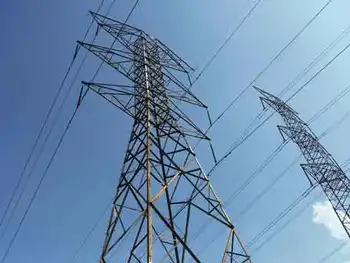BWI Power Outage caused flight delays, cancellations, and diversions after a downed power line near Baltimore/Washington International. BGE crews responded as terminal operations, security screening, and boarding slowed, exposing infrastructure gaps and backup power needs.
Key Points
A downed power line disrupted BWI, causing delays, diversions, and slowed operations after power was restored by noon.
✅ Downed power line near airport spurred terminal-wide disruptions
✅ 150+ delays, dozens of cancellations; diversions to nearby airports
✅ BGE response, backup power gaps highlight infrastructure resilience
On the morning of March 3, 2025, a major power outage at Baltimore/Washington International Thurgood Marshall Airport (BWI) caused significant disruptions to air travel, much like the London morning outage that upended routines, affecting both departing and incoming flights. The outage, which began around 7:40 a.m., was caused by a downed power line near the airport, according to officials from Baltimore Gas and Electric Company. Although power was restored by noon, the effects were felt for several hours, resulting in flight delays, diversions, and a temporary disruption to airport operations.
Flight Disruptions and Delays
The outage severely impacted operations at BWI, with more than 150 flights delayed and dozens more canceled. The airport, which serves as a major hub for both domestic and international travel, was thrown into chaos, similar to the Atlanta airport blackout that snarled operations, as power outages affected various critical areas, including parts of the main terminal and an adjacent parking garage. The downed power line created a ripple effect throughout the airport’s operations, delaying not only the check-in and security screening processes but also the boarding of flights. In addition to the delays, some inbound flights had to be diverted to nearby airports, further complicating an already strained travel schedule.
With the disruption affecting vital functions of the airport, passengers were advised to stay in close contact with their airlines for updated flight statuses and to prepare for longer-than-usual wait times.
Impact on Passengers
As power began to return to different parts of the terminal, airport officials reported that airlines were improvising solutions to continue the deplaning process, such as using air stairs to help passengers exit planes that were grounded due to the power outage, a reminder of how transit networks can stall during grid failures, as seen with the London Underground outage that frustrated commuters. This created further delays for passengers attempting to leave the airport or transfer to connecting flights.
Many passengers, who were left stranded in the terminal, faced long lines at ticket counters, security checkpoints, and concessions as the airport worked to recover from the loss of power, a situation mirrored during the North Seattle outage that affected thousands. The situation was compounded by the fact that while power was restored by midday, the airport still struggled to return to full operational capacity, creating significant inconvenience for travelers.
Power Restoration and Continued Delays
By around noon, officials confirmed that power had been fully restored across the main terminal. However, the full return to normalcy was far from immediate. Airport staff continued to work on clearing backlogs and assisting passengers, but the effects of the outage lingered throughout the day. Passengers were warned to expect continued delays at ticket counters, security lines, and concessions as the airport caught up with the disruption caused by the morning’s power outage.
For many travelers, the experience was a reminder of how dependent airports and airlines are on uninterrupted power to function smoothly. The disruption to BWI serves as a case study in the potential vulnerabilities of critical infrastructure that is not immune to the effects of power failure, including weather-driven events like the windstorm outages that can sever lines. Moreover, it highlights the difficulties of recovering from such incidents while managing the expectations of a large number of stranded passengers.
Investigations into the Cause of the Outage
As of the latest reports, Baltimore Gas and Electric Company (BGE) crews were still investigating the cause of the power line failure, including weather-related factors seen when strong winds in the Miami Valley knocked out power. While no definitive cause had been provided by early afternoon, BGE spokesperson Stephanie Weaver confirmed that the company was working diligently to restore service. She noted that the downed line had caused widespread disruptions to electrical service in the area, which were exacerbated by the airport’s significant reliance on a stable power supply.
BWI officials remained in close contact with BGE to monitor the situation and ensure that necessary precautions were taken to prevent further disruptions. With power largely restored by midday, focus turned to the logistical challenges of clearing the resulting delays and assisting passengers in resuming their travel plans.
Response from the Airport and Airlines
In response to the power outage, BWI officials encouraged travelers to remain patient, a familiar message during prolonged events like Houston's extended outage in recent months, and continue checking their flight statuses. Although flight tracking websites and social media posts provided timely updates, passengers were urged to expect long delays throughout the day as the airport struggled to return to full capacity.
Airlines, for their part, worked swiftly to accommodate affected passengers, although the situation created a ripple effect across the airport's operations. With delayed flights and diverted planes, air traffic control and ground crews had to adjust flight schedules accordingly, resulting in even more congestion at the airport. Airlines coordinated with the airport to prioritize urgent cases, and some flights were re-routed to other nearby airports to mitigate the strain on the terminal.
Long-Term Effects on Airport Infrastructure
This incident underscores the importance of maintaining resilient infrastructure at key transportation hubs like BWI. Airports are vital nodes in the air travel network, and any disruption, whether from power failure or other factors, can have far-reaching consequences on both domestic and international travel. Experts suggest that BWI and other major airports should consider implementing backup power systems and other safeguards to ensure that they can continue to function smoothly during unforeseen disruptions.
While BWI officials were able to resolve the situation relatively quickly, the power outage left many passengers frustrated and inconvenienced. This incident serves as a reminder of the need for airports and utilities to have robust contingency plans in place to handle emergencies and prevent delays from spiraling into more significant disruptions.
The power outage at Baltimore/Washington International Airport highlights the vulnerability of critical infrastructure to power failures and the cascading effects such disruptions can have on travel. Although power was restored by noon, the delays, diversions, and logistical challenges faced by passengers underscore the need for greater resilience in airport operations. With travel back on track, BWI and other airports will likely revisit their contingency plans to ensure that they are better prepared for future incidents that could affect air travel.
Related News












